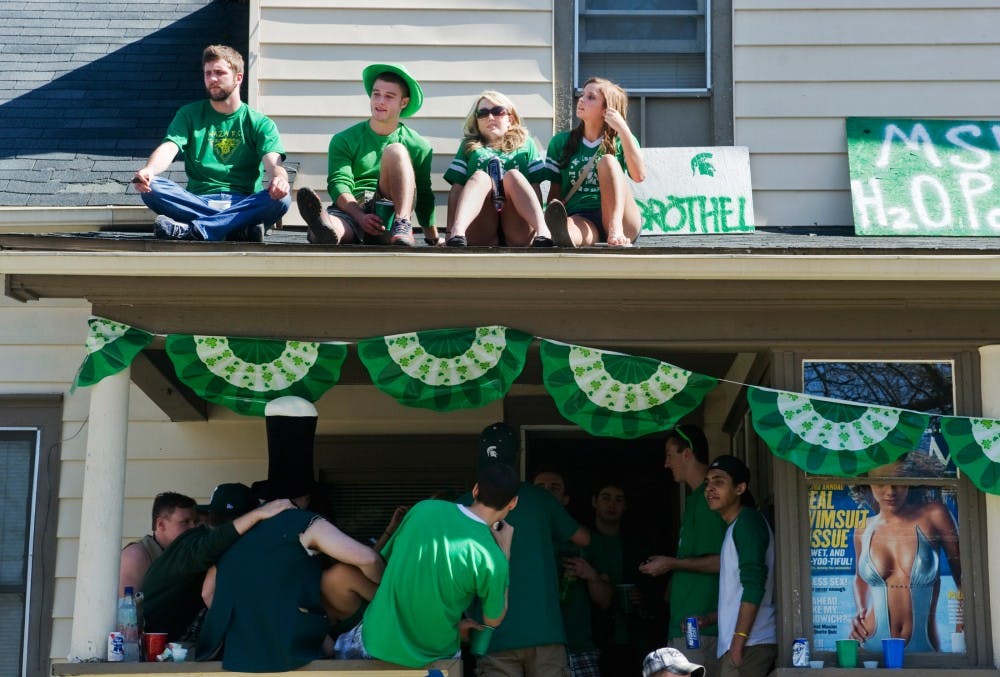East Lansing City Council deferred action on an ordinance that would prohibit the recreational use of roofs at its meeting Tuesday night.
Council will discuss the ordinance at its work session on Aug. 18 with the possibility to once again take action at their Sept. 1 meeting. Council’s decision came after a lengthy argument against passing the ordinance by East Lansing resident Patrick Rose.
Rose, who has been a private practice lawyer for 22 years and was a former clerk at the Michigan Supreme Court, said he wanted to “slow down the train” because he didn’t like a number of different elements he saw included in the ordinance.
The first, and perhaps most concerning issue for East Lansing tax payers, was that the ordinance could attract “valid lawsuits,” according to Rose. Rose said these lawsuits would stem from the city not having the right to tell property owners how to use their roofs.
Rose said the ordinance is too broad and that the city has spent substantial money defending similar ordinances in court. He cited one ordinance in particular that regulated signage and billboards in East Lansing. A lawsuit was filed against the city regarding this ordinance which went to the Michigan Court of Appeals twice and cost the city hundreds of thousands of dollars to defend, according to Rose.
Rose said the ordinance deferred at Tuesday’s meeting would have attracted lawsuits and eventually would have had to be amended by council after a ruling by a judge.
“This has happened at least three times, but it seems like we have better ways to spend that money,” Rose said. “Get it right the first time. Figure out what judges have already said yes to.”
Rose said going forward the city attorney must consult a model ordinance that has worked somewhere in Michigan or around the country. He also said the attorney should consult the Michigan Municipal League and the National Municipal League to look at other rooftop ordinances and include language that narrows the ordinance so it allows for owners to go on their roofs when it’s lawful to do so.
“The ordinance is limited to recreation use only, and that is not a precise category and it doesn’t cover all the activities that you want to allow,” Rose said.
Rose said he was concerned the ordinance would outlaw legal activities such as sunbathing on roofs. He also said he was motivated to come and speak at Tuesday’s meeting because he was recently up on his roof dealing with an issue of red squirrels who were using his roof to access his home.
“I figured out how the squirrels were getting on the roof by sitting on the back of my low, flat back porch roof. Was I engaged in maintenance? I don’t think I was and I don’t want to be made a criminal,” Rose said.
The ordinance would have prohibited the recreational use of roofs, but would have allowed access for maintenance purposes.
Rose said he also believes the ordinance presents a safety issue for students.
“If you make it a crime to be on a roof without handrails during a party, students will be running off the roofs. They will come down and push the person in front of them to avoid getting a criminal record,” Rose said in a memo to council. “The head injuries and harm from student falls after this ordinance passes will most likely increase, rather than decrease.”
Council decided to work with “Version C” of the ordinance moving forward, which would make being on roofs for recreational purposes a civil infraction instead of a misdemeanor. This was the extent of council’s discussion addressing the issues of safety the ordinance may cause.
Although council voted unanimously to defer action, not all members agree with Rose’s assessment that the ordinance is too broad and outlaws a number of legal activities.
“I really think it (the ordinance) is pretty clear the way it is written, but I would like some additional information about when roofs are safe for occupation and when they are not,” councilmember Kathleen Boyle said.
Mayor Nathan Triplett addressed some of the behaviors many would consider legal activities on roofs. He confirmed that, technically speaking, if the ordinance passed Tuesday night it would have prohibited rooftop sunbathing and similar activities, but Triplett said it is highly unlikely police would enforce the ordinance this way, instead focusing their main concern on large groups of people partying on roofs.
Triplett also said he could see where much of the concern about the ordinance is coming from and that council will work to address these concerns moving forward.
“Our objective is to draft something that deals with problems we want addressed and doesn’t capture innocent behavior at the same time,” Triplett said.







